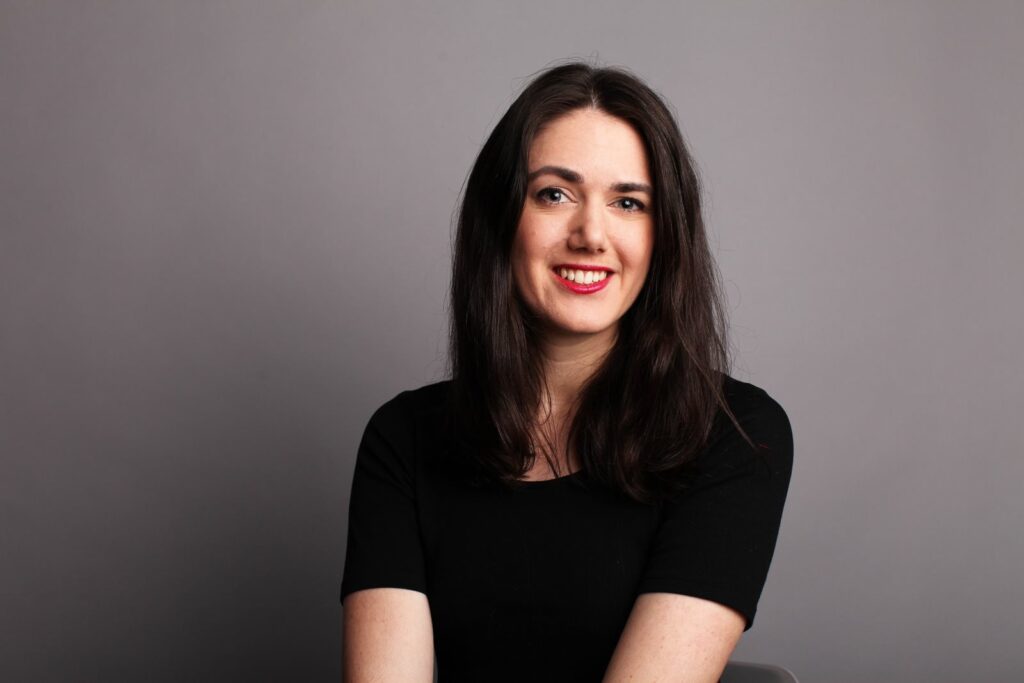
By Douglas Esser
With understandable pride, Jason Pace, the director of the University of Washington Bothell’s Digital Future Lab (DFL), calls Simone de Rochefort a superstar. One of the lab’s founding interns, de Rochefort (Culture, Literature and the Arts ’13) is now a digital media journalist in New York City.
De Rochefort produces videos that catch tens of thousands of views for Polygon, a top website for video game news and reviews. She also hosts a podcast for Polygon. She co-hosts another weekly podcast on tech news, “Rocket” on the Relay FM network, which has posted more than 200 episodes. Her tweets have 30,000 followers.
“I would not be where I am today,” de Rochefort said, “if I had not had that specific sequence of events at UW Bothell — meeting the people I met, taking the classes that I took, taking the internships I took.”
Video games as a career
Growing up, de Rochefort enjoyed playing video games. It didn’t occur to her that making or covering games could be a profession.
“That was something that became a possibility in my first quarter at UW Bothell when I took a course about video games that sounded fun. I ended up meeting professors who were very helpful. I realized this isn’t just a hobby,” de Rochefort said. “Something I could actually do around games could be a career.”
De Rochefort was one of the first student interns at the DFL, originally known as the Center for Serious Play. It transitioned to being the DFL in 2012 under the leadership of Pace, who had been a creative director for the Halo franchise on Xbox at Microsoft. As a design studio within UW Bothell, the DFL produces commercial video games in an environment that values empathy and collaboration among students with different backgrounds and talents.

“Jason Pace pushed us to transform the internship into something where we were producing meaningful work — work that got me my first job out of college, actually,” she said.
As an established intern, de Rochefort launched a blog, and as more interns arrived, she learned about supervising. “It’s not just me scheduling when I need to get things done,” she said. “It’s me making sure that other people are getting things done, and that they have the support they need to get things done.”
Starting with a startup
After de Rochefort graduated, a friend told her about a website that reviews children’s video games for parents. The startup needed research and content. “At that interview, I was able to point to the website that I had been working on,” said de Rochefort, who landed the job.
In 2016, professional connections led her to New York and Polygon, a website she admired for its tone. It had an approach “that covered games and saw people who play games not as a monolith but as the diverse group that they are.”
As part of a Polygon video team now, she sees her role not as a reviewer but as someone who evaluates and comments on video game culture “almost as analysis, but less boring.”
De Rochefort calls the weekly “Rocket” podcast a side gig. She gives most of the credit for the “accelerated geek conversation” to co-hosts Brianna Wu and Christina Warren. “I bring structure and levity to the show.”
More than crows
When she thinks of UW Bothell, de Rochefort remembers the sight and sound of thousands of crows coming home to roost. More importantly are the friends she made, who are still friends, and the value of the education.
“It definitely was the exact experience that I needed it to be. It was a special time in my life when I was working at DFL, surrounded by people, given the chance to make things as a student and to do things,” de Rochefort said. “I feel lucky that I was given the opportunity to do that.”



